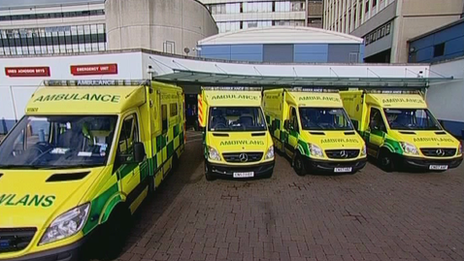Welsh Ambulance Service braced for performance figures
- Published
Health economist Prof Ceri Phillips said patients with minor ailments should not expect to turn up at A&E or need an ambulance
The latest statistics on the performance of the Welsh Ambulance Service are set to be published.
It has failed to meet its response time targets for the highest priority calls for most of the past two years.
The health minister told AMs in June he expected to see "urgent improvements" within three months.
The ambulance service said it is responding but BBC Wales has learnt that some improvements may not be delivered until Christmas.
It is an emergency service that all too often has found itself in the headlines.
Last week, a 73-year-old great grandmother died in an ambulance queuing outside the A&E department at Morriston Hospital, Swansea.
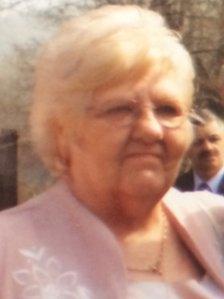
Sonia Powell's family say they been let down by the ambulance service
Sonia Powell's family said she was let down by a system struggling to cope.
First Minister Carwyn Jones offered them his condolences and told AMs on Tuesday there had been an improvement in ambulance response times and he "expects that improvement to continue".
Earlier this month a coroner called for urgent changes following the death of a pensioner from Wrexham - who had had to wait nearly six hours for an ambulance to arrive.
Meanwhile on the front line, ambulance staff speak of feeling frustrated and under-valued. Many are considering industrial action.
Only last Friday it was announced that the chief executive of the ambulance service would step down because of ill-health.
But critical headlines are not new and the ambulance service has been under intense scrutiny for quite some time.
It has been reviewed and audited more often than any other part of the Welsh NHS.
The most recent review in April last year called for big changes after uncovering fundamental flaws.
The Welsh government says the changes which include simplifying the way the service is funded are well under way.
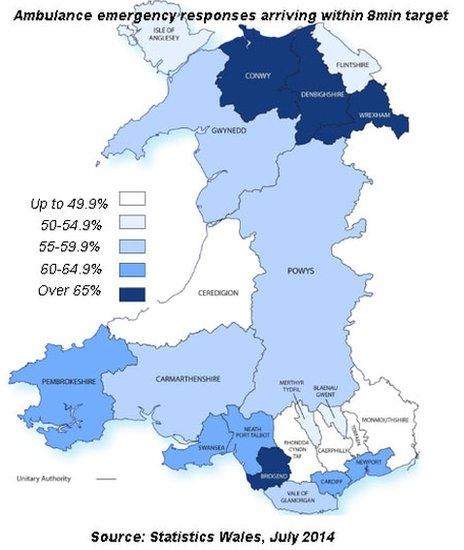
Yet it is continuing to struggle with performance.
Across Wales the service has failed to meet its response time target for the most urgent calls every month except one - since summer of 2012.
Opposition parties call that a "national scandal".
In June, Health Minister Mark Drakeford gave the service three months to deliver an "urgent improvement".
He said: "I don't want to be in a position of coming in front of this assembly in September to find the performance we've seen in May - and I'm afraid into June as well - and having to explain why the ambulance service has not been able to make the necessary improvements."
So the health minister along with his political opponents will carefully study Wednesday's statistics.
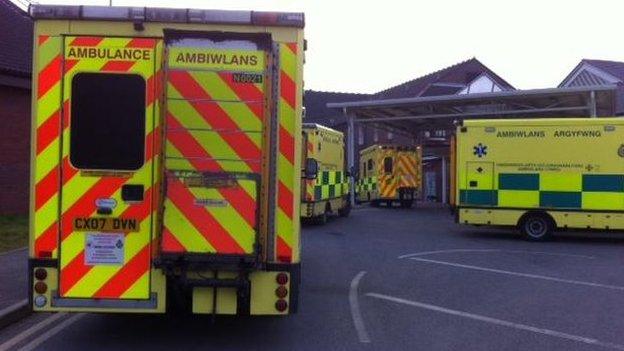
Queuing outside Wrexham Maelor hospital - handover times for patients has been a key issue
Meanwhile ambulance service says improvements are being delivered:
79 extra staff have been recruited since April, including 21 paramedics
Dozens more are due to take up their posts in the coming months with millions of pounds is being spent on new vehicles
Since August, taxis have been used to transfer 40 patients to hospital where it was considered clinically safe to do so, reducing the burden on the ambulance fleet
For the first time ever - private ambulances have been used to support the service in south east Wales on weekends
Meanwhile extra shifts have been offered to staff to cover gaps in rotas.
And ambulance crews now have to take breaks at hospitals or at the nearest ambulance stations instead of returning to base.
A policy that is understood not to be popular among staff.
It is thought the ambulance service believes these and other changes will deliver improvements by Christmas, although it concedes getting the necessary resources in place to bring the service truly up to scratch could much longer. Up to three years.
So the scrutiny, is likely to continue but some argue the ambulance service sometimes gets blamed for things it can not control.
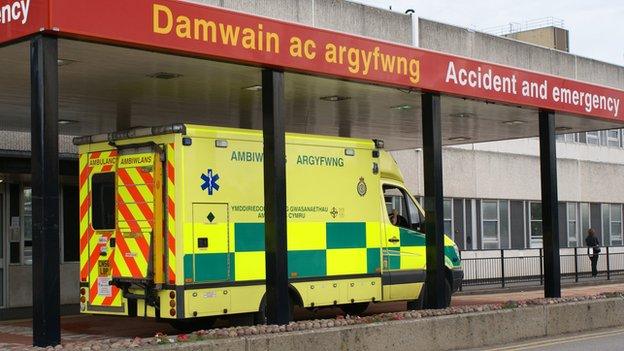
All too often ambulances are called when not necessary, warn experts
Health economist Prof Ceri Phillips, of Swansea University, said the ambulance service was sometimes the natural first point of call for patients because of pressures elsewhere.
Prof Phillips said: "If a person has a health problem, they phone the GP and if they can't get an appointment, they've got a choice - do they go to A&E or do they call for an ambulance?
"If they're unable to travel then perhaps the ambulance is the point of contact. So we get calls that aren't necessary but we only determine that when the paramedic arrives at the scene."
The figures are due out at 09:30 BST on Wednesday.
- Published24 September 2014
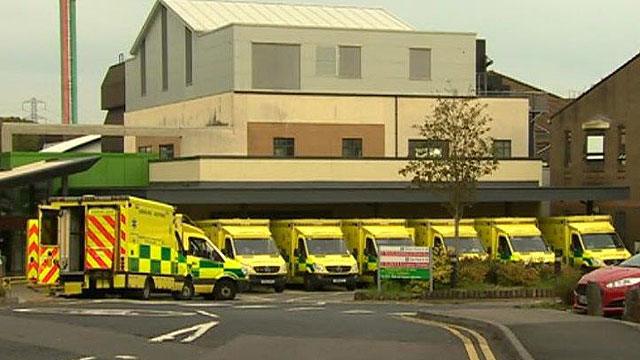
- Published19 September 2014
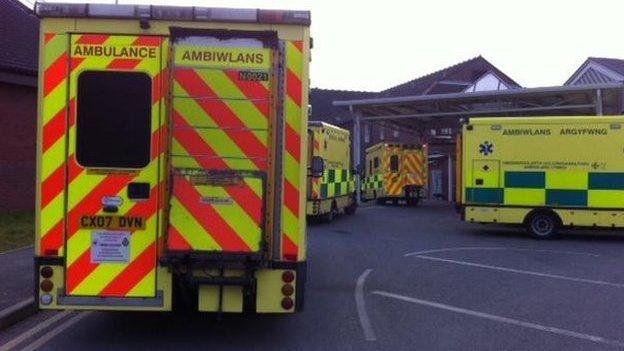
- Published18 September 2014
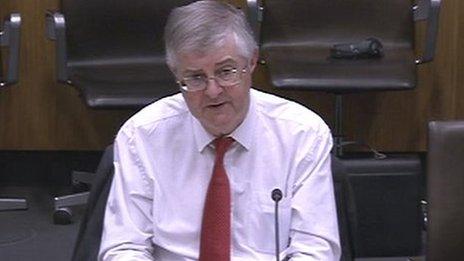
- Published25 June 2014
